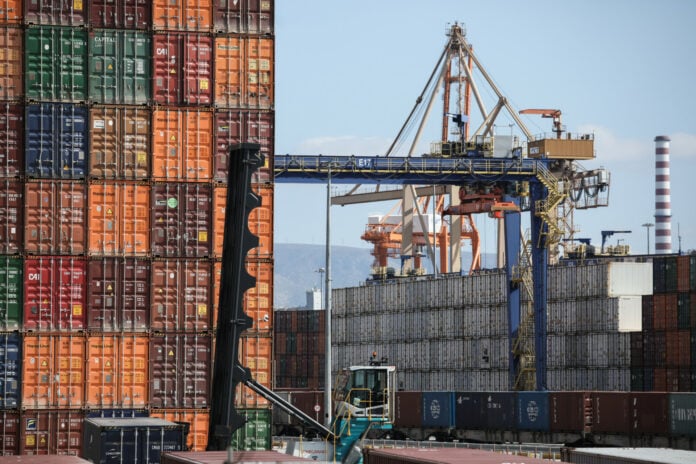Greek exports plunged in the first quarter of 2024, while some sectors managed to show resilience amid an unfavorable environment.
According to the analysis “Business Trends: Exports (1st quarter 2024)” of the Directorate of Economic Analysis of the National Bank, Greek exports recorded a decline of 9% annually (in deflated terms) in the quarter November 2023-January 2024 as a result of:
- climate change
- geopolitical turmoil and
- slow international demand.
Specifically, almost half of the decline is a result of losses in olive oil and cotton exports, where climate change has hit cotton production (-47%).
The adverse conditions
Excluding these two products, Greek exports remain in negative territory in the last quarter (-5%, in deflated terms), as:
-The crisis in the Middle East (e.g. the transit problems in the Suez Canal) makes it difficult (i) for our products to access the markets and (ii) for our businesses in raw materials, but also (iii) for the transit role of the country.
-Low demand in Western Europe and the Balkans (which account for ⅔ of Greek exports) led to an 8% drop in Greek exports to the region in the last quarter. It is noted that the rest of the markets register mixed trends, with a cumulative performance of +1%.
The sectors that stand out
Food and wood (cumulatively accounting for 30% of exports) showed resilience, as they are the only ones registering a positive performance in the last quarter (+4% and +13%, respectively), continuing the upward trend that preceded the dynamic 2020 period – 2023H1 (+23% and +94%, respectively).
Clothing is characterized as a weak sector (covering 3% of exports) which is under continuous pressure throughout the reference period (2020-2023), while at the same time it recorded the sharpest decline in the last quarter (-38%). Under these conditions, the sector has lost 1/3 of its export power compared to 2019 (-0.5 billion euros).














